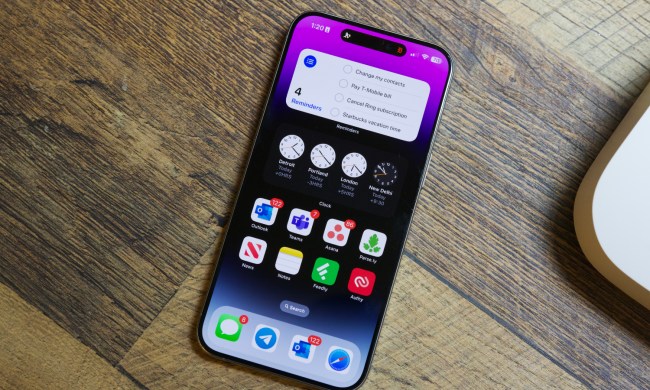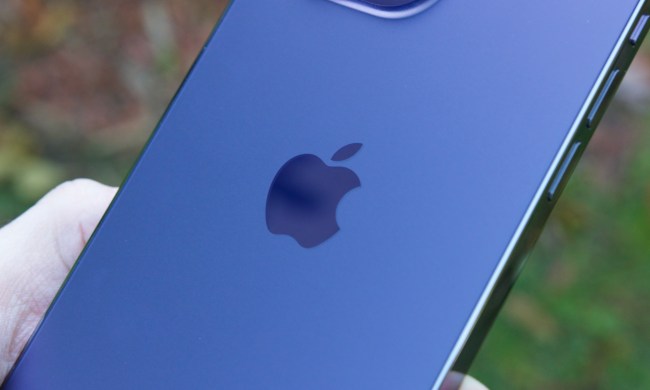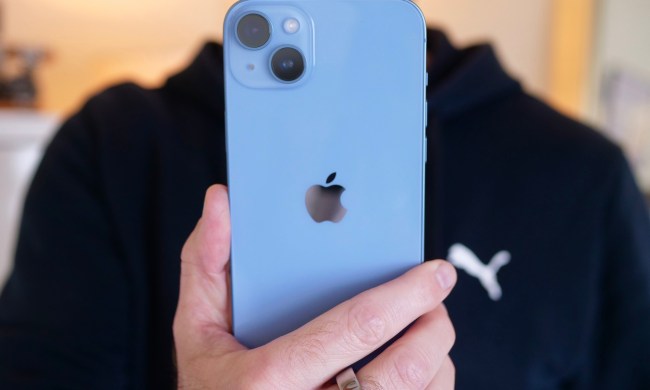When an Android phone user texts an iPhone person, it appears in a green bubble in iMessage. It’s Apple’s way of telling that the sender is not an iPhone user. But that green bubble is not particularly forgiving from a social standpoint; plus, it just led to some heated commentary from Google, which alleged that Apple engaged in bullying tactics.
The Wall Street Journal recently highlighted how the “green bubble effect” is being weaponized for creating social pressure. Teens feel ostracized for using an Android phone, because it identifies their messages with the color green. Plus, iPhones don’t come cheap and are often seen as a social status symbol. Forcing it upon others with iMessage — and its green bubble — as an agent is nothing but bullying, says Google.
“iMessage should not benefit from bullying,” Google’s official Android account tweeted. But Hiroshi Lockheimer, a Senior Vice President at Google overseeing
iMessage should not benefit from bullying. Texting should bring us together, and the solution exists. Let’s fix this as one industry. 💚💙 https://t.co/18k8RNGQw4
— Android (@
Android ) January 8, 2022
“Using peer pressure and bullying as a way to sell products is disingenuous for a company that has humanity and equity as a core part of its marketing,” he tweeted while sharing the aforementioned article, adding that iMessage is a well-known lock-in strategy. The Google executive’s argument has some merit to it. Apple hasn’t been particularly generous with its “walled garden” ecosystem, either.
How iMessage stands out in the message-verse?
iMessage lets users react to a message with a bunch of emojis. For a green bubble Android user in the conversation, the reactions are literally transcribed as “Liked” in front of the message in question. The same happens for the other set of emojis. And as this Reddit thread sums up, not everyone “likes” it — especially the closed circle of iPhone users. Thankfully, it has been fixed to some extent, reports 9to5Google.
Apple’s messaging service also has a three-dot indicator that appears in the chat bubble. It is officially called the “typing awareness indicator” and tells users that the person on the other end is typing their response. It’s a sign of reassurance. This New York Times article dating back to 2014 perfectly explains how these bubbles carry a lot of psychological weight. Similar is the case with reading receipts, which don’t need much explanation. Recently, Memojis have become quite the ecosystem-exclusive rage as well.

On a functional level, iMessage relies on an advanced protocol that sends messages over Wi-Fi or a cellular internet network. Messages sent to an iPhone from an Android phone rely on the ancient SMS protocol that demands an active cellular plan and are charged accordingly. It also lacks a bunch of advanced tricks, such as the ability to send high-resolution photos and videos, message reactions, delivery receipts, typing indicators, etc.
All these drawbacks are highlighted in one thing: A green bubble. There, there is iMessage purgatory. Essentially, if you ditched the iPhone for an Android device and missed the iMessage deregistration step, your messages are dropping in hidden hell. All your incoming messages will show “delivered” status to the sender using an iPhone, but the messages never actually arrive on the
The green bubble divide is not new
The Wall Street Journal’s findings are neither surprising nor fresh. The green bubble has ruined dating for many, gotten school kids kicked out from group chats, and even had athletes running laps as a punishment. Even celebrities are very vocal about their dislike. “The fact that kids are being shut out of conversations with peers because of a technology disconnect is troubling,” Fast Company Senior Writer Mark Sullivan highlighted in 2019.
The painful bright ass shade of green that appears when a non-iMessage user texts me….pisses me straight off.
— Zendaya (@Zendaya) January 7, 2017
“Ugh, Green Bubbles!” is how Emmy Award-winning journalist Jonna Stern headlined her article for The Wall Street Journal in 2018. Stern exposed the worrying real-life consequences of the iMessage lock-in effect and argued why Apple should embrace RCS for the sake of every smartphone user.
Senior CNET Associate Editor Patrick Holland also ran into the iMessage conundrum that kept him from ditching his iPhone for Samsung’s sleek Android flagship. All the way back in 2016, Gizmodo tech editor Michael Nunez wrote that he was buying an iPhone because of the shame brought upon him by the green bubble.
A 2019 article from The New York Post detailed how the “I won’t date an Android user” complex is very much a real thing. The green chat bubble was seemingly a red flag for folks trying the dating game, and the status quo continues to this day. Just look up the words “green bubble” in the Twitter search feed, and you will see how profoundly it affects the search for a romantic partner.
can’t believe I kissed a boy w green texts I am so nice that was my act of charity for the year
— abbey (@Iouisavontrapp) May 14, 2019
“Look, no one doubts you’re a great friend and a cool person. But all of that is nullified because of your green messages,” writes Ryan Fan, a Baltimore City special education teacher. “For the time being, please just get an iPhone. If you don’t, I guess we just can’t be friends anymore. Sorry.”
This Reddit thread titled “Oh, you’re a green text” will educate readers on the fascinating phenomenon. But the green bubble makes its presence felt in more areas than just trying to woo a romantic partner or sharing memes in a group chat of schoolmates.
As per an Insider story, Dallas Mavericks head coach Jason Kidd made the entire team run sprints as a punishment because one of the players had an Android phone. The resulting green bubble messed up the blue-only team chat, and in the eyes of Kidd, it was a sign of not being united. Additionally, a Tech Insider video documented a die-hard iPhone user’s temporary transition to a Google Pixel 3 XL. By the end of the video, the test subject was still “Team iPhone” — and iMessage had a role to play in that loyalty.
What about running iMessage hacks on Android? Put it simply, it’s not for the faint-hearted. Dan Nosowitz recounted a personal tale of bewilderment in an NYMag article detailing how he attempted to run an iMessage hack on his
What does Google want?
Google’s answer to the iMessage drama is RCS, or Rich Communication Services. It solves a lot of problems. RCS enables video calls, doesn’t limit messages to a certain number of characters, shows read receipts and typing indicators allows document sharing, and a lot more. It works over Wi-Fi and cellular internet but defaults to feature-starved SMS when needed. It sounds like a complete package, and after a hellish journey, it has finally been accepted by carriers and lives in the Messages app on Android phones globally.
We’re not asking Apple to make iMessage available on Android. We’re asking Apple to support the industry standard for modern messaging (RCS) in iMessage, just as they support the older SMS / MMS standards.
— Hiroshi Lockheimer (@lockheimer) January 10, 2022
For now, Google (through SVP Lockheimer) is asking Apple to adopt RCS messaging. RCS is not the cure to all of Android’s messaging problems, but from a technical standpoint, it would be a major step toward unifying messaging standards. From a social standpoint, it would get rid of the blue bubble/green bubble drama. The biggest issue here is that Apple is not a fan, and it won’t bring iMessage to
The topic of bringing iMessage to Android was being debated at Apple, and it picked up pace when rumors emerged that Google was planning to buy WhatsApp. That wasn’t a reason strong enough, though, apparently. “Moving iMessage to
“iMessage on Android would simply serve to remove [an] obstacle to iPhone families giving their kids
How Apple responds to Google’s bullying allegation remains to be seen. Will this finally force Apple to embrace RCS or bring iMessage to Android — or both? Unlikely. But, Apple recently brought FaceTime calls to Android. It’s nothing but raw hope for a less-frustrating future for messaging.



